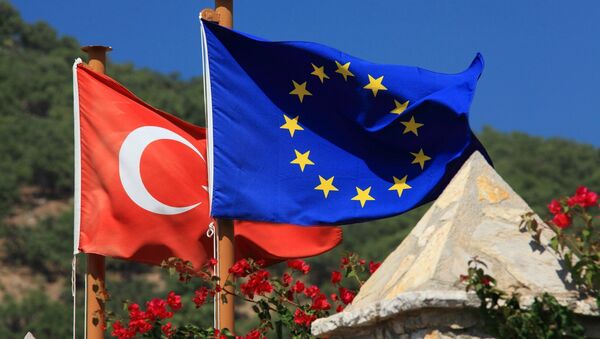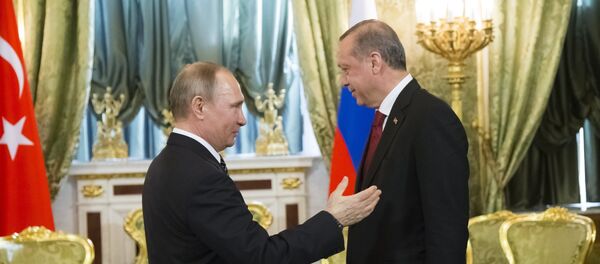ANKARA (Sputnik) — Commenting on the EU position on Turkey's internal reforms, such as a proposal to reinstate the death penalty, Esener labeled it as a "provocation." He noted that the recent referendum on expansion of the president's powers would change the constitution, however, the European Union should "make its own decision."
On Saturday, President of the European Parliament Antonio Tajani said that Turkey's position on a number of internal issues, such as debates on capital punishment and the arrests of journalists, was unacceptable, but expressed hope that the situation would change, and affirming Brussels "would not shut the door for Turkey."
EU officials have repeatedly expressed concern over the state of human rights in Turkey and its political situation after last year's failed coup attempt, when thousands of people, including journalists and activists, were arrested, and over suggestions made by Turkish President Recep Tayyip Erdogan to reinstate the death penalty. The April 16 referendum in Turkey on constitutional reforms, which expanded the powers of the president, also triggered dismay from within the bloc.
The association agreement between Turkey and the then-European Community was signed in 1963, to be followed by Turkey's submission of a membership application in 1987. Talks on Ankara's EU membership began in 2005 but have been repeatedly suspended due to various obstacles, including the failed coup attempt.



